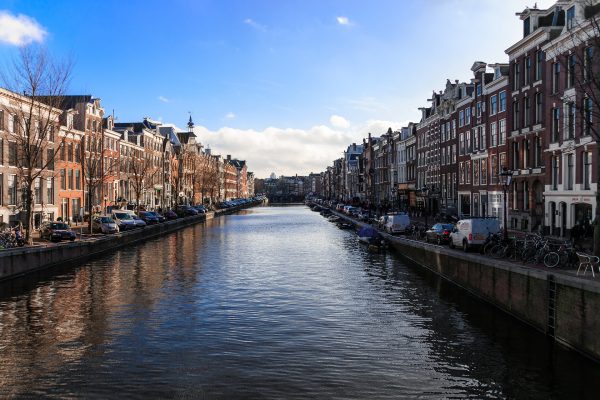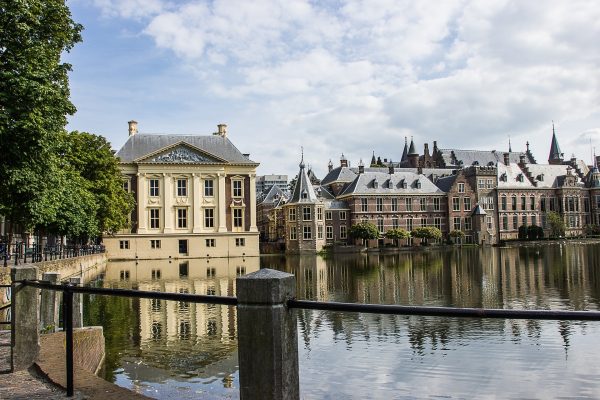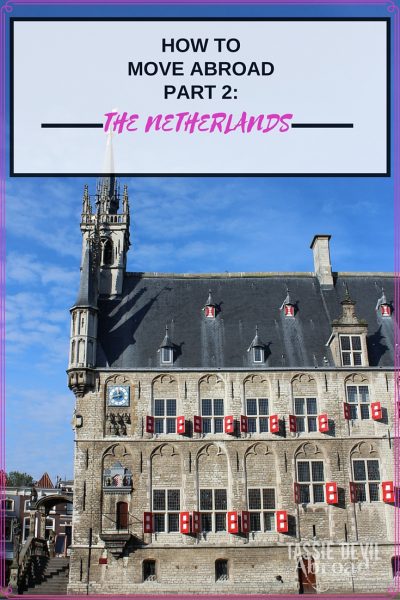As a follow-on from my post the other week on how to move abroad to London, this week I have also written a guide on how to move abroad to the Netherlands! Some of the information in this post is similar to the London one, however, the process of moving to the Netherlands is not completely the same and, I think, is much more complicated than moving to London. But if you follow my handy guide then hopefully it can help make your own move a little smoother!
Research
600×400 
Seriously, if you are even thinking of moving to the Netherlands, you will need to do a tonne of research first. It can be a very confusing process, mostly because Dutch bureaucracy is constantly telling you one thing and then completely contradicting it later. Your first step is to visit the Dutch IND (Immigration and Naturalisation Service) website and figure out what kind of visa you can apply for. Then you need to figure out the steps you need to take and what documents you are going to need.
When I first moved to the Netherlands I came on a working holiday visa that was basically the same as what I used to move to London, except it was only for one year. Unfortunately, this visa is only available for residents of Australia, New Zealand and Canada. If you are not from one of these countries then it seems that for work visas you will need to be sponsored by an agency to even get a visa. After the year was up I switched to a visa that allows you to live with your Dutch partner and this lasts for five years. But before that expires I will need to go through the Inburgering process – which basically proves I can speak Dutch and understand the culture – in order to be allowed to stay.
Bottom line, find out if you can even apply for a visa before you worry about anything else – here is the link for the IND website and this page is specifically for the working holiday visa.
Employment and Language
If you are only able to get a visa by being sponsored by a company then this is kind of a moot point; but I would personally encourage you to find employment before you move to the Netherlands, as it is really not as easy to get a job as you might think. Unless you speak Dutch (and another language other than English as well probably), finding work in the Netherlands is hard. If you want to teach (even to teach English) you will require a certificate that basically states your teaching degree is equivalent to one in the Netherlands. You also need to be fluent in Dutch as part of the requirements to get it.
If you work as some sort of web developer or programmer you will (I believe) have the highest chance of finding a job. These are the ones I always see being advertised, and often they don’t even require Dutch. If you are planning to live in Amsterdam or The Hague then finding a job will also be easier as there are a lot of expats and internationals so you could probably get an English-speaking job as a nanny or au pair, or work in hostels, cafés etc. But if you live outside of a big city (like me) then learning as much Dutch as you can before you even arrive, will be a BIG help.
Accommodation
Now obviously finding accommodation wasn’t an issue for me as I was moving to be with my partner who already owned his own apartment. But from what I have learned since living here, it can be difficult to find affordable accommodation in the Netherlands so you should probably get onto it as soon as you know in which area you will probably be working.
Following on from the above point, you will probably want to live in Amsterdam or the Hague if you don’t speak Dutch, as these are where most of the expats and internationals are living so it will be easier to find an English-speaking job. However, these are also the most expensive and difficult places to find accommodation for the same reason! Join Facebook groups for expats and accommodation and do your research ahead of time for the best websites to find accommodation in the Netherlands. Some that I have seen/heard recommended include Funda and Pararius.
Visa
One thing about moving to the Netherlands that is very different from the process of moving to the UK is how you actually apply for your visa. While I recommend you do all your research and get documents ready ahead of time, you don’t actually need to apply for the visa until you are already in the country – if you are from Australia, Canada, Japan, Monaco, New Zealand, South Korea, the United States or one of the countries that are part of the European Union or Switzerland.
If you are not from one of these countries you WILL need to apply for a visa while outside of the country. See this page on the IND for more details on the procedure. If you are from one of the aforementioned countries then you can simply visit your nearest IND office once you are in the country to start the process. Be prepared to make many phone calls and visits in order to figure it all out as nobody seems to agree on the way to do it.
We visited the IND office in Zwolle at least twice, as well as our local town hall, and I can’t even remember how many phone calls Dennis made about it. Take a deep breath and don’t panic because even if someone tells you that you’ve done something incorrectly (after someone else said to do it that way) they will help you and not kick you out of the country or anything! Just keep following up with the IND.
Bank, BSN, Doctor
The Burger Service Nummer (BSN) is the Dutch equivalent of a tax-file or social security number and you need it to do basically anything in the Netherlands. You will need to take lots of paperwork to your local town hall to apply for one, with this you will then be able to do things like get health insurance, open a bank account, work and get paid, get a doctor etc. Find more information about applying for a BSN here.
To register with a doctor you will need to research which practices in your area accept new patients and then register. You will also need to open a bank account if you want easy access to money! If you are looking to transfer money from your own currency into Euros into your new bank account, then I personally use Wise and find it the best option currently on the market.
While my situation was a little different to some (I had my Dutch boyfriend to help me with everything) hopefully this guide will still be of use to you if you are thinking of or planning to move to the Netherlands. You might also be interested in my post on What it’s like to Live in the Netherlands before you make the decision, so check that out! Don’t hesitate to ask me any questions you might have about moving to and living in, the Netherlands and I will help as best I can. Tot ziens!






I’m looking at going to teach in the Netherlands next year. However, I’m completely confused as to which visa I can get. I have looked into the working holiday one and it states you can only do tentative work. When I contacted IND I was told I can only work in the same place for 12 weeks. I’m really hoping to get work before I go! I’m so glad I found this post.